
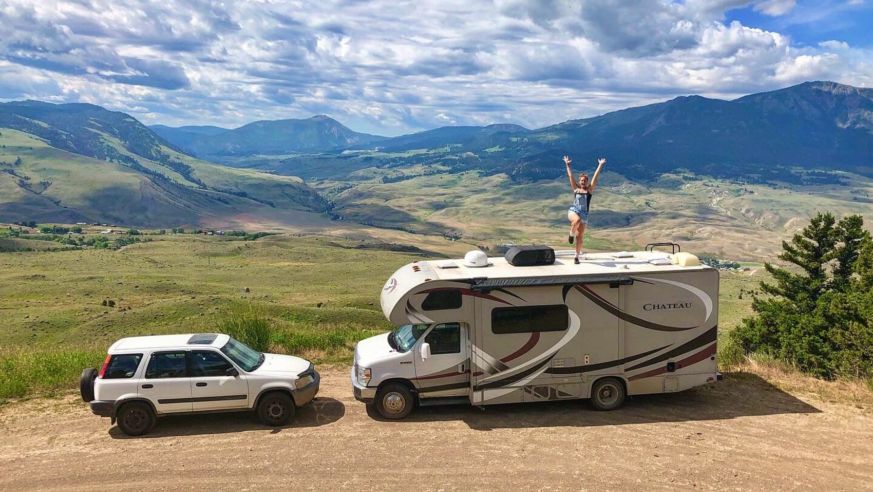
@caraostara
Cara at @caraostara is a full-time RVer who has experienced the lifestyle both alone and with a partner. After realizing her successful career was no longer making her happy, she took a chance to pursue solo RV life. Now in her third year of living this n Photo courtesy of @caraostara, via Instagram
This content is sponsored by
In the last few years, RV sales have skyrocketed as more and more Americans decide to live nomadically while traveling the country. We decided to dig into the lifestyle by interviewing six individuals or couples experiencing it themselves. Here’s what you need to know.
Why do people typically choose an RV over other methods of long-term travel?
There are many ways to experience long-term travel in the US. People have lived in their cars, gotten into #vanlife, or have even survived by moving from vacation rental to vacation rental. Why did those we interview decide to go with RV life?
In a nutshell, the answer was space.
- Partners need room to do their own things: Whether it’s space to work creatively or to have simultaneous work meetings, having just one room doesn’t work for many couples.
- Friends and family can visit: Many RVers went into the lifestyle thinking they wanted family and friends to be able to visit and travel with them. Having a bigger space like an RV meant they could convince more to do so.
- Keep all your traditional conveniences: Those we interviewed wanted to travel more but didn’t want to give up the convenience of spaces such as a kitchen, living room, and bathroom. For some, switching to something smaller than an RV, like a van, would have been too much of a leap. For the amount of time they anticipated traveling, it made sense to get a bigger space they would be comfortable in.
- A place to call home (that actually feels like a home): One of the biggest reasons for RV life is for something to come back to at the end of the day that felt like a home, rather than just a suitcase or a small vehicle.
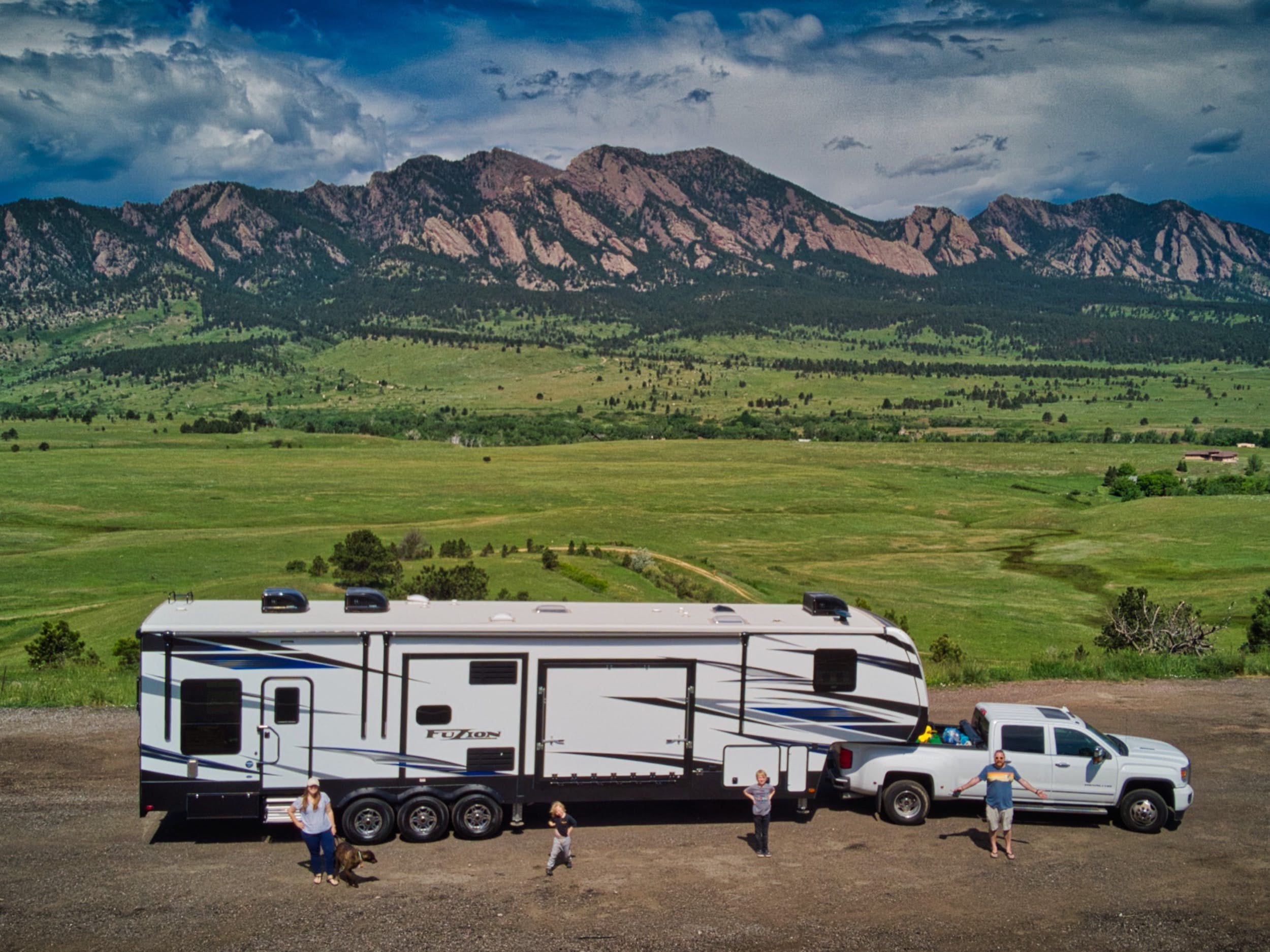
Where do you sleep?
There are quite a few places you can park your RV at night. These are the most common.
- Campgrounds: Using campgrounds that provide hookups is the classic RV parking method.
- Boondocking: Boondocking refers to finding a piece of land to camp on where you’re not hooked up to anything. It’s much more affordable than staying at a campground but does require some investment up front. Being self-sufficient in an RV is often synonymous with things like solar panels, extra batteries, extra water tanks, and extra fuel tanks. Boondocking is infinitely easier to do out West.
- Moochdocking: Moochdocking is where you set up camp on a friend or family member’s driveway.
What type of RV should you get?
While selecting your RV is a very personal choice, there are a few things everyone should consider.
- Power to get over mountain passes: One of the couples we interviewed used to have a class-C RV that had trouble with this task. They began to feel limited on where they could travel – the exact opposite of their intention in buying an RV.
- Personal safety considerations: One RVer who used to travel solo said she loved having a drivable RV for the safety aspect. When she parked somewhere for the night, she had the ability to simply move into the back to go to sleep. She didn’t need to walk around outside in order to access her bedroom.
- Ease of use while driving: Fifth wheels are going to be easier to tow than travel trailers as they are less tricky to back up and generally shift less in the wind. Keep in mind length corresponds with difficulty of driving.
- Age of the RV: A newer vehicle will likely need less renovations within. However, older RV electronics can be easier to maintain for those without a lot of RV knowledge. Newer rigs are generally more complicated, often requiring you to go to the dealership when something breaks.
How do you finance your RV?
For the most part, there are two options for buying your rig:
- Purchase it outright
- Finance
It’s very similar to a car purchase, and financing makes breaking into the lifestyle a realistic achievement for those without too much in savings.
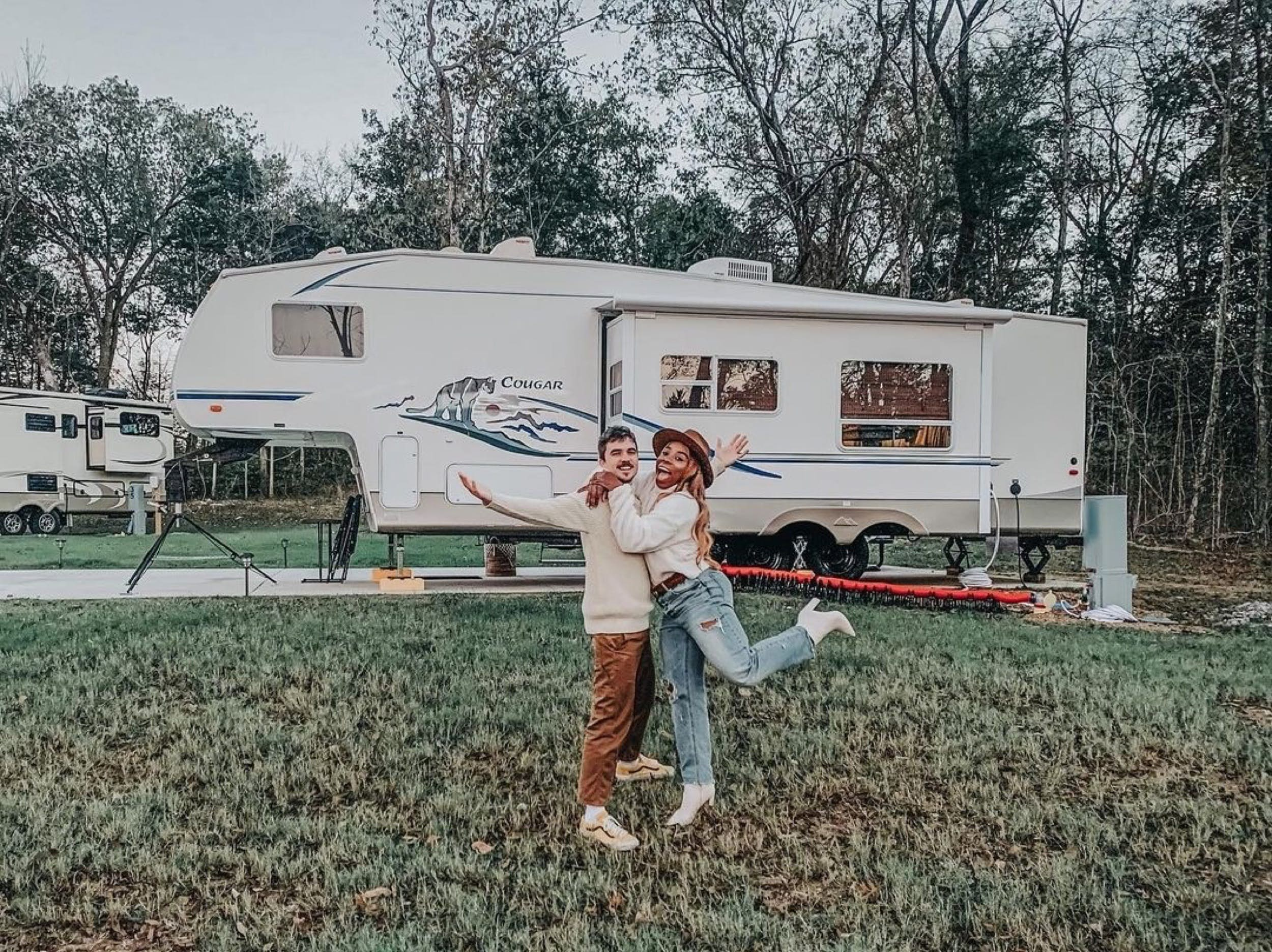
How much does RV life cost?
The cost of RV life will depend heavily on how, where, and when you prefer to travel.
- Daily cost: Daily cost of living for items like food, campsites, and gas will vary wildly depending on the area you’re in. If you’re seeking out big destination areas (as many travelers like to do), you’ll be spending more money than elsewhere.
- Speed of travel: No matter where you park your rig, slowing down can help you save money. Oftentimes, campgrounds will give discounts for weekly or monthly stays, compared to nightly rates. You’ll also spend less on gas by traveling more slowly.
- RV life can work for every budget: In general, however, you can spend as much or as little as you want. Some get into RV life to save money. Others find themselves breaking even when compared to their previous life. Others find themselves spending more. You can make RV life work for whatever kind of budget you’re comfortable with.
What do RVers do for income?
The answer is a wide variety of things. Some have their own businesses that allow them to set their own hours. Some make money from YouTube, Instagram, and their blog.
Many work regular full-time corporate jobs that are remote. Some work just part time to cover daily expenses. Some work seasonal jobs and travel the rest of the year. Others live off savings for a while.
People make their transition all different ways. You have to figure out for yourself what will give you the independence to live in your RV while still making enough money to meet your financial goals.
What safety essentials should you consider?
Everyone has different levels at which they feel comfortable, so not all of these items will seem essential to every reader. But these are all safety measures taken by at least one of our RVers. Take a look and see what speaks to you.
- Wasp spray: Wasp spray can be used as a personal defense item. With a similar use case as pepper spray, this type of spray doesn’t dissipate into the air as easily.
- Firearm: A few of the RVers we spoke with are registered firearm carriers. Depending on the type of RV and the state you’re in, your home may be considered a domicile rather than a vehicle. This makes it simple to travel with a weapon of this sort across many state lines (but not all).
- First aid kit: Do your best to be prepared for small medical emergencies by purchasing the classic safety essential, a first aid kit.
- Home security camera: See who (or what) is outside your RV without needing to open the door. You can also use a security camera inside to keep an eye on your belongings or pets while you’re away.
- Motion sensing security lights: Just like many homes have, motion-sensing lights can be placed on the outside of your rig.
- Alarm system: You can have the same alarm systems installed for your RV as you would your stationary house. Get alerts to your phone if there’s suspicious activity.
- Built-in GPS for the internet: Having GPS connected to your internet allows you to see where your rig is as well as how fast it’s moving. This can be useful when you take it in for service. By utilizing this tool, some RVers have discovered that their mechanics have not treated their RVs properly.
- Bike lock: If you have a bike, be sure to get a good lock. Bike theft is one of the most frequent criminal acts RVers encounter.
- Fire extinguishers: Yes, fire extinguishers plural. Keep one in all areas in which your path to the exit could be blocked. Don’t forget to learn how to use one before you need it.
- Automatic fire suppression systems: There are now fire suppression systems that will automatically deploy. These can be installed in places such as your refrigerator or battery compartment.
- Kingpin: A kingpin is a locking mechanism that stops someone from simply coming over and taking your towable RV.
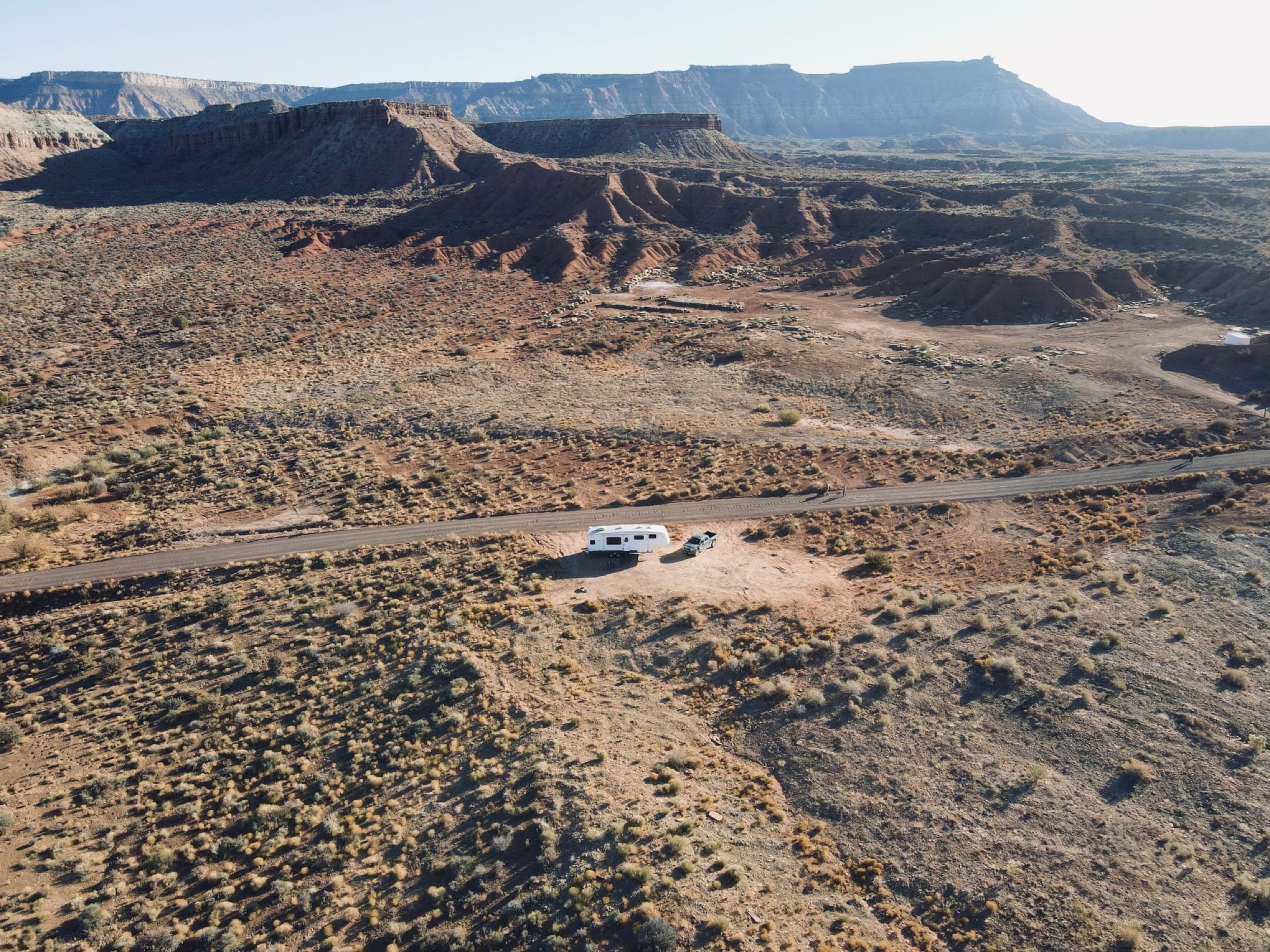
What are automotive essentials associated with RV life?
Many who enter RV life don’t know anything about RV or vehicle maintenance, and that’s ok. It’s important to know the basics, however, and have a general awareness of what’s going on. The most essential thing you can do is monitor your RV (and truck if you’re towing) so you can address a problem right away.
One RVer equated RV maintenance to house maintenance. Just like you’re always fixing something for your stationary home, so too will you always be fixing something on your rig. Engage in preventative maintenance as much as is reasonable, have tools on hand in case of a tire emergency, and know you will likely end up becoming a little bit more handy once you’ve been in your RV for a while.
- What to monitor: Be sure to regularly monitor tire pressure, check fluids, inspect the seals on your windows, check your brake and turn signal lights, and keep an eye out for leaks or cracks that are forming.
- Stay proactive: Staying proactive on things like oil changes, power steering, and tire rotations will help you avoid problems in the future.
- Tools to keep on hand: You may want to consider keeping the following tools with you: a general tool kit, tire pressure gauge (perhaps even a remote tire pressure monitor), air compressor, and all tools necessary to change a tire.
What are helpful resources for those either thinking about RV life or those in it already?
- YouTube: The number one answer: YouTube. With everything from maintenance how-tos to people speaking about their RV life experience, YouTube has got answers to practically all of your questions.
- Instagram: Instagram was used by those we interviewed for a wide variety of RV-related tasks, including finding a rig to buy. It can also be used for research. Learn tips and tricks by following accounts of those who live the lifestyle. People are happy to help you with questions if you message them! You can also reach out to fellow RVers on Instagram who are in your area in order to make friends in person. One of the individuals we interviewed has met over 100 people this way.
- Facebook: Facebook Marketplace is a useful tool for selling items before you move (or while on the road if you realize you brought way too much stuff). You can also find RVs for sale there. Facebook groups such as those surrounding RV life or working remotely can also be helpful!
- Craigslist: Craigslist is a great tool in finding RVs for sale.
- Campendium: Campendium is an app that helps travelers find places to camp in the US, Canada, and Mexico. It features user-generated reviews and cell service reports.
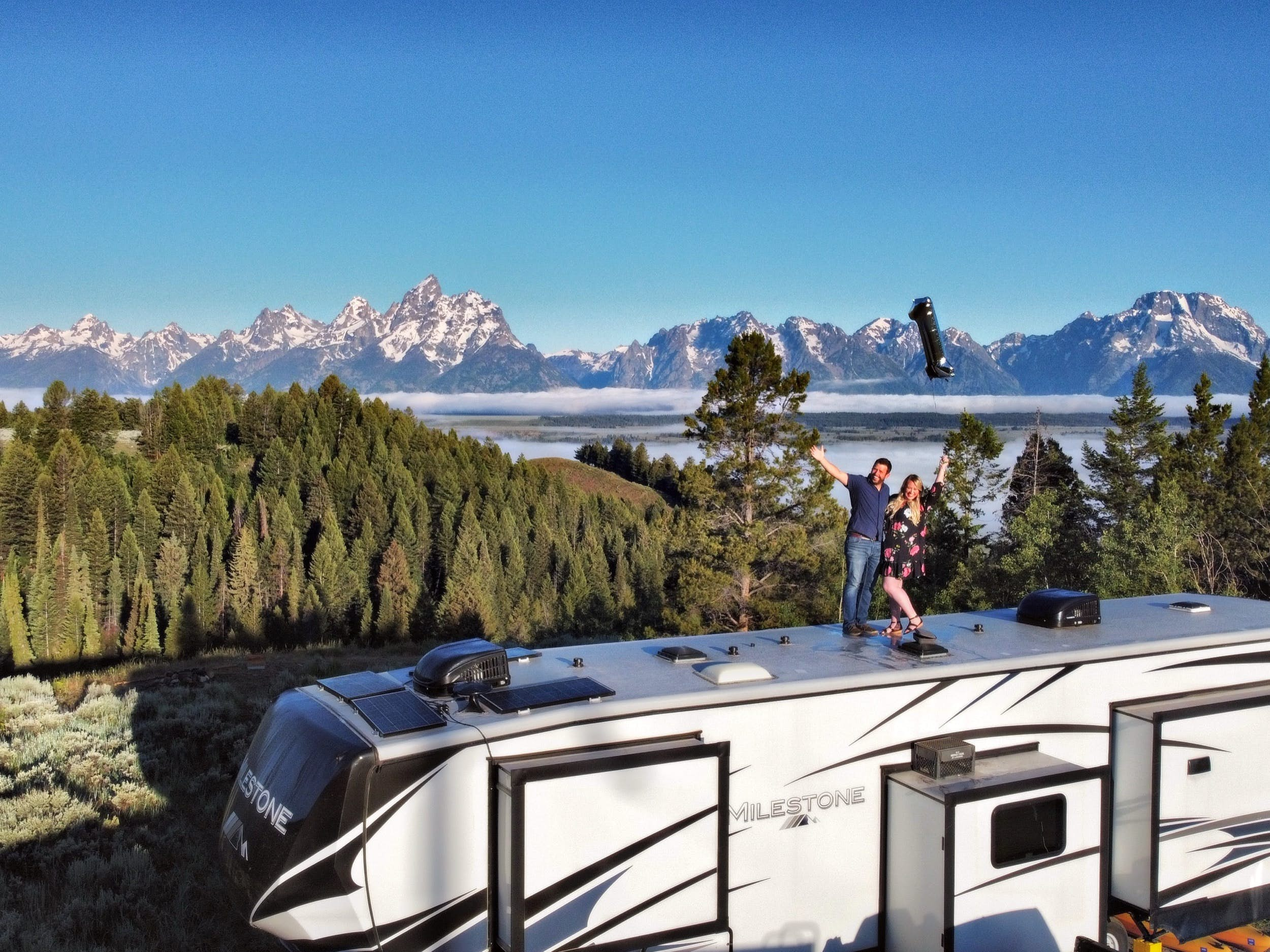
What are the best parts of RV life?
- Seeing friends and family: Living in an RV makes it much easier to see friends and family. As one couple put it, they’re now able to visit with family they would normally only see at weddings and funerals.
- Spending more time in dream destinations: When you work a traditional 9-5 with limited PTO, your travels are also limited. Over the course of a year, you may go to a couple destinations for a week at a time. Because it’s a lifestyle rather than a vacation, living in an RV allows you to stay in these places for longer stretches. It also allows you to see so many more places than you can with just a few weeks off a year.
What are some challenging aspects to living on the road?
The first few months of transition during which you’re learning the basics can be difficult. Here are a few areas in which those we interviewed struggled.
- Small living area: There are many things you don’t think about when you imagine taking off in your rig down the road towards some of America’s most beautiful public lands. One of those things may be the fact that you’re going to be crammed into often less than 300 square feet. RVs are usually much larger than vans, but they’re still tiny in comparison to the stationary homes people leave behind. It takes some getting used to.
- Personal space and communication: Managing personal space can be a significant challenge. When you’re upset with someone, you can’t necessarily go to a separate room like you can in a regular house. Learning to honor and respect each other’s space is crucial. If you’re traveling with others, communication becomes essential. It’s easy to see this lifestyle leading to strained relationships if you don’t learn to be patient and communicate properly during frustrating situations – and you’ll have them, trust us.
- Weather and seasonal differences: Living on the road, you’re at the mercy of the weather. Your life becomes much more connected to the elements. Becoming weather-aware is critical, especially because you likely won’t be used to a lot of the weather you encounter. Not every season of living in an RV is equal. Winter can be a difficult time to live in a small space. The days are shorter and the temperatures are colder, forcing you inside more frequently.
- Planning exhaustion: When you’re constantly traveling, that also means you’re constantly planning everything from where you’re going to sleep at night to what hikes you’ll doing that week. At the beginning, always thinking about logistics can be taxing. As you practice and figure out what tools you like, planning will become easier.
- Campground scarcity: Because the lifestyle has become so popular recently, some things have become more difficult. It can take time to get repairs and parts. Additionally, campsites are filled far ahead of time in some areas of the country. One couple we spoke with said they have sites booked out six months in advance because of how saturated the campgrounds on the East Coast are.
- Slight changes in daily chores: There are also much smaller daily challenges. One of these is laundry. It can be a hassle to spend a whole day washing your clothes at a laundromat when, before, you simply threw them in the machine at home. You also have to tweak your mindset when it comes to groceries. For many RVers, a full-size fridge is a luxury they don’t have. Additionally, while many grocery stores have similarities, there are also differences in layouts and brands across the country that can have you shopping for far longer than you intended to.
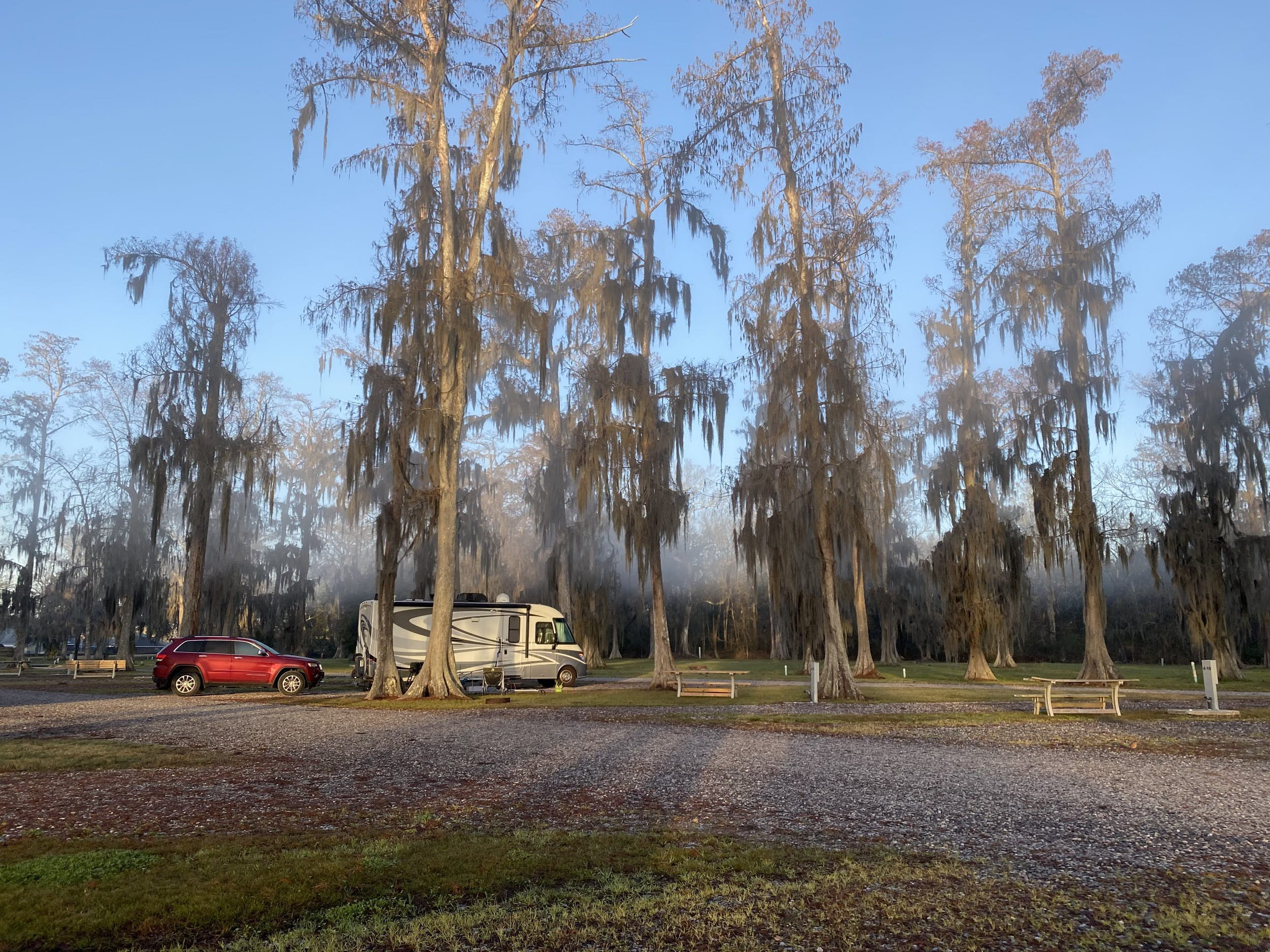
What should you do before hitting the road?
- Financial planning: Make sure you’re entering this lifestyle responsibly. Ideally, you should begin with as little debt as possible. When you’re traveling the country, you don’t want to be stressing about credit card payments. It’ll only detract from the experience.
- Decide what to do with your home: If you own a home, decide whether you’re going to keep it or sell it. Many sell theirs, but it’s also possible to keep it and rent it out while you’re away
- Determine your residency: Many keep their current residency, some establish residency in a state in which they have close family, and some utilize residency programs for people who work remotely such as the one in South Dakota.
- Downsize: You will need so much less than you think you will. Downsize, downsize, downsize. It’ll save you weight, you won’t encounter nearly as many headaches when it comes to organization, and you’ll have more space. Anything you don’t bring with you can be easily purchased while on the road.
- Organize: When you have such a small space to work with, organization is key. If you do it right, you won’t feel like your space is small because you’ll be able to fit so much. Set yourself up for success right at the beginning by investing in storage solutions that not only allow you to fit everything you need, but also make those items easily accessible.
- Prepare to make mistakes: As with anything you try for the first time, there’s a learning curve during which mistakes will happen. Don’t beat yourself up about them or let the idea of them hold you back. Things will go wrong. Mentally prepare yourself for these and cut yourself some slack when they do inevitably happen.
- Dive in: The only way to learn everything you need to know about RV life is by jumping in. There’s only so much preparation you can do ahead of time.
Do I have to get rid of every material thing I love?
The easy answer to this question is no! Absolutely not, in fact.
An RV really is like a mini house, so you’ll likely not give up too many items. Those we interviewed brought things like board games, books, blenders, office supplies, diffusers, espresso machines, and framed photographs.
For sentimental or irreplaceable items, many RVers use storage, whether it be storage at their family members’ homes or in a storage unit.
What should you do if you’re on the fence of joining RV life?
- Rent a rig: Before you head to a dealership (or Facebook Marketplace) to buy your home on wheels, consider renting an RV. This will give you a taste of the lifestyle before you dive in with a purchase.
- Live in the driveway: Whether or not you try living in an RV before purchasing one, take some time to test out your rig before you hit the road full time. First, live in your RV while it’s stationary. Get a feel for the space and learn what you do or don’t need in daily life. This step is especially important if you have pets. They need to get accustomed to the new space so they’re as comfortable as possible when it begins to move.
- Go on a test trip: Once you’ve gotten a little more comfortable, go on a month-long trip far from your home base. This allows you to get out of your comfort zone and get a taste for what full-time RV life is like while still allowing you the opportunity to fine-tune things before you head out permanently. After this point, you can bail if you decide RV life isn’t right for you.
- Commit to a time frame: If you’re still interested in the lifestyle, set a time frame that you’re going to commit to before you hit the road for real. There’s going to be an adjustment period, so it’s recommended you commit to at least six months.
- Consider the worst-case scenario: Lastly, ask yourself what the worst-case scenario is. Realistically, it’s that you don’t like living in an RV, you sell it, and you move back into a stationary home. Doesn’t sound like the end of the world, does it? In fact, it sounds exactly like what you were doing before.
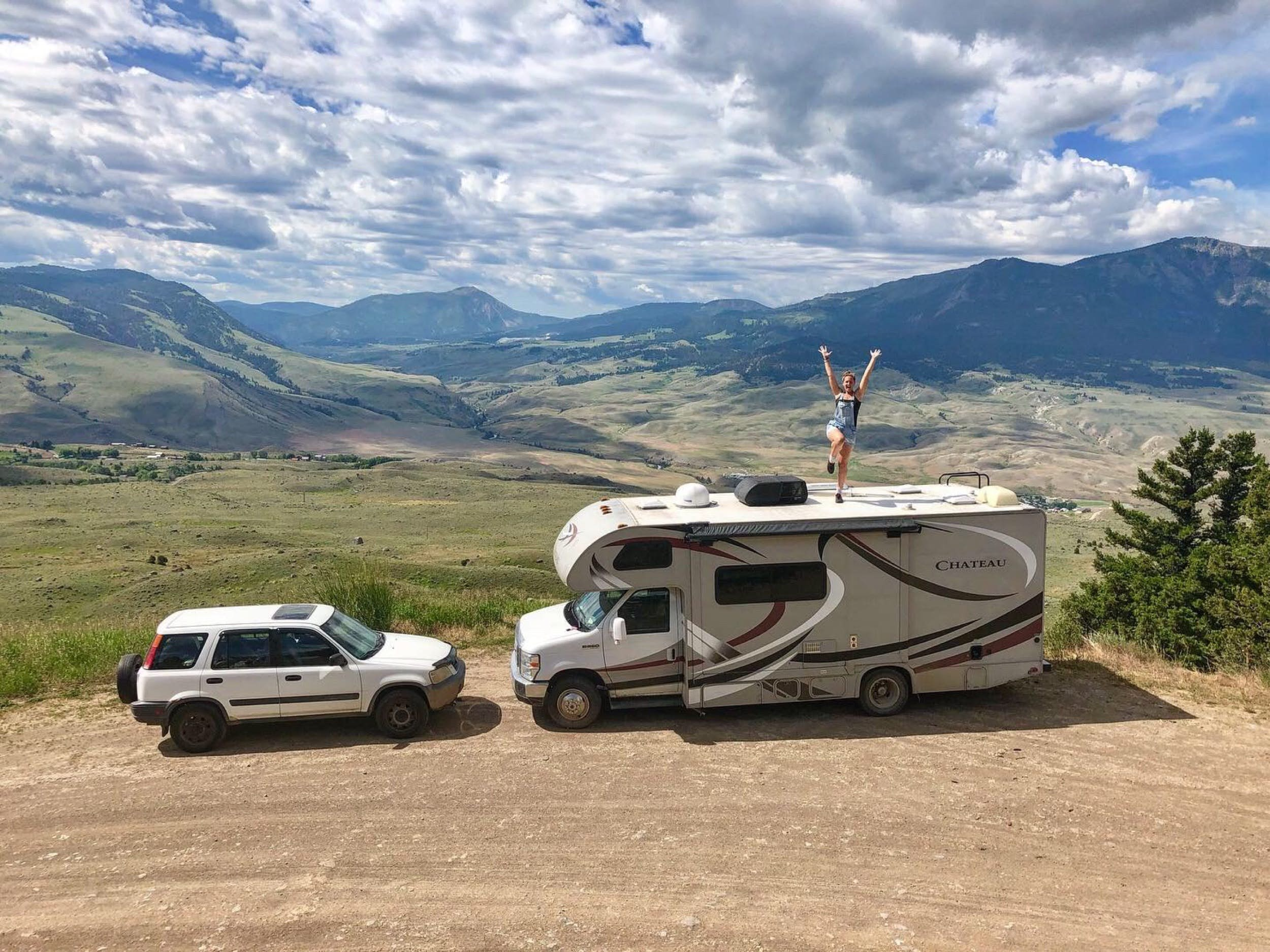
Finally, here are a few parting words of advice from those we interviewed:
- If this lifestyle was easy, everyone would do it. That means there will be challenges. If you think it’ll make you happy despite those challenges, do it.
- Fears of the unknown are normal, and you may simply be fearful that it’s unknown. The more you educate yourself, the less scary things will be.
- RV life isn’t for everyone, but it says a lot about a person if they’re considering this lifestyle. If there’s something inside of you that makes you want to do it, chances are pretty high you’re going to like it.
- It’s important you remember why you’re getting into this lifestyle. The highs are going to be high, but the lows are going to be low. Remember your why throughout it all.
- Society doesn’t set you up to live in an RV full time, so things will never feel exactly right. Because of this, you’ll never feel perfectly ready. You just have to make the leap.
SPONSORED BY
Carefully crafted collaboratively between GEICO, Budget Travel and Lonely Planet. Both parties provided research and curated content to produce this story. We disclose when information isn’t ours.




